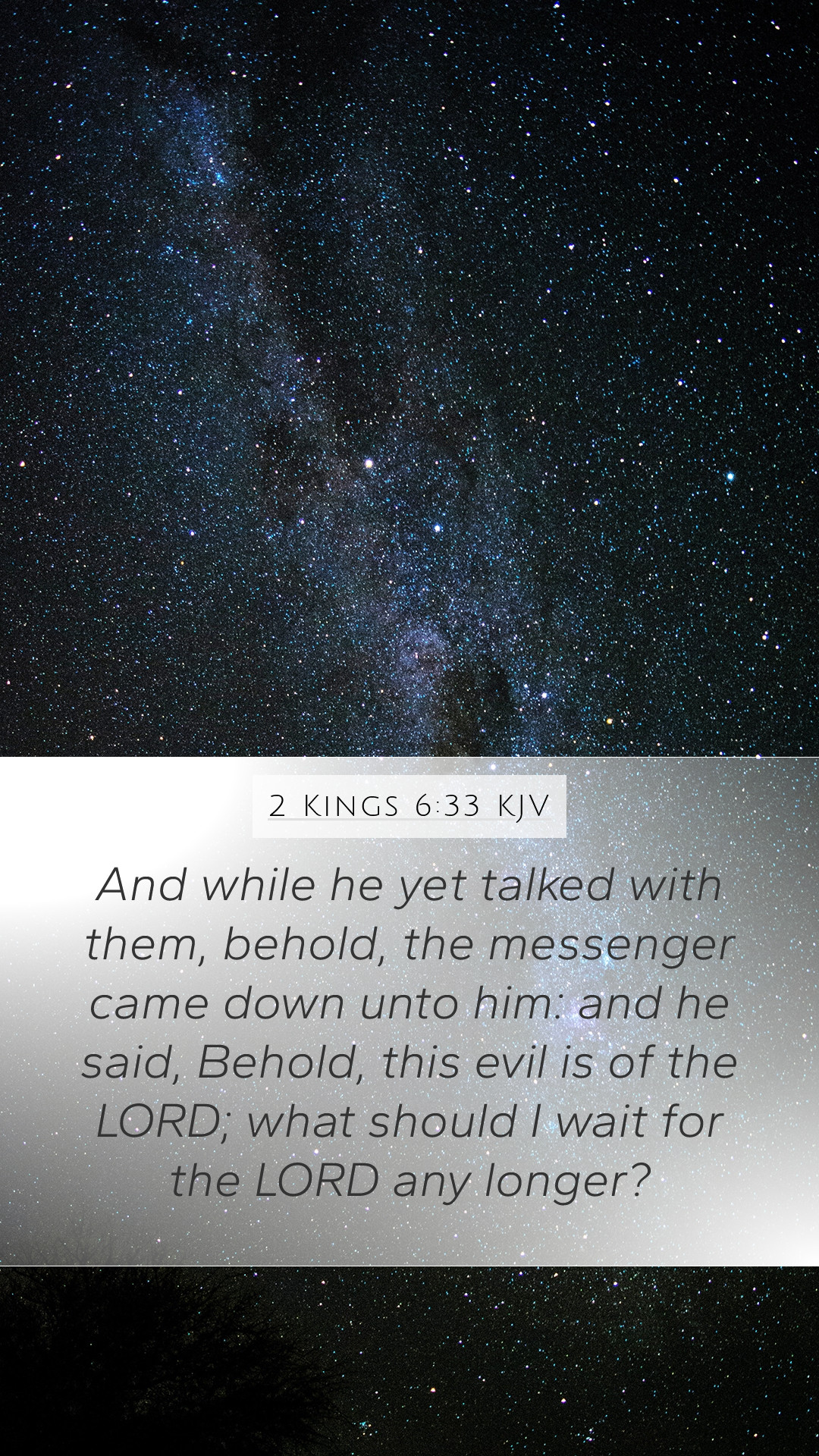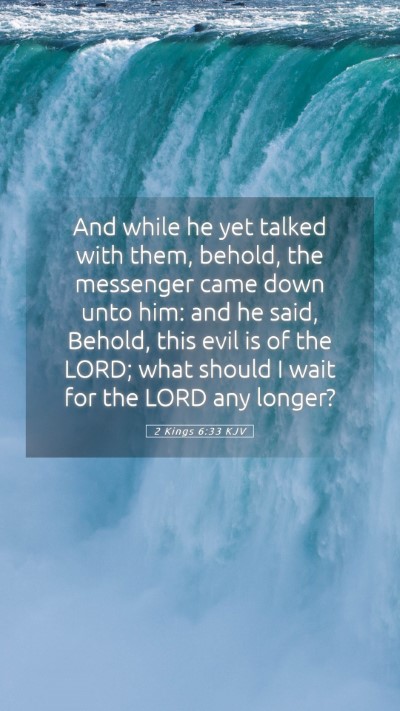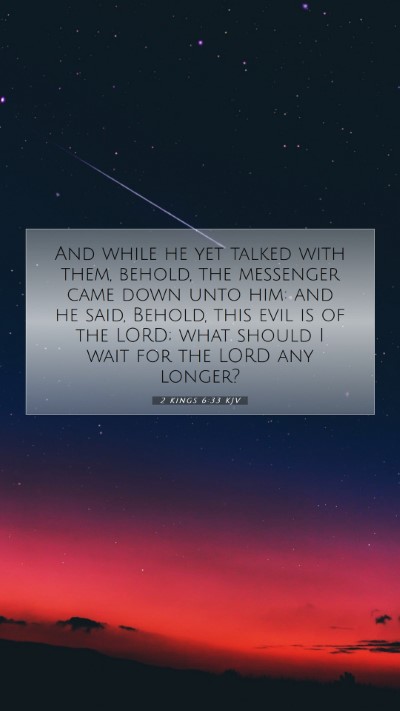Meaning of 2 Kings 6:33
2 Kings 6:33 presents a poignant moment in the narrative of Elisha, prophet of Israel, during a time of great famine and despair. The verse states, "And while he yet talked with them, behold, the messenger came down unto him: and he said, Behold, this evil is of the LORD; what should I wait for the LORD any longer?"
Contextual Overview
This passage unfolds in the context of a siege laid by the Arameans against Samaria, the capital of northern Israel, leading to dire conditions. The people are experiencing extreme hunger, and the king, in his desperation, sends for Elisha, expecting a word of relief or hope.
Biblical Exegesis and Commentary
-
Matthew Henry’s Commentary:
Henry explains that the messenger represents the despair of the people, acknowledging that the catastrophe they face is the result of divine judgment. This acknowledgment of evil as from God implies a theological understanding that they are bearing the consequences of unfaithfulness. Elisha’s steadfastness in the face of calamity highlights his role as a prophet in communicating God’s will even during distressing times.
-
Albert Barnes’ Notes:
Barnes emphasizes that the messenger's declaration reflects a deep sense of hopelessness and a recognition of God's sovereignty over the circumstances they face. The phrase "what should I wait for the LORD any longer?" captures a sense of impatience and a crisis of faith among the people, as they grapple with the severity of their plight.
-
Adam Clarke’s Commentary:
Clarke asserts that the evil in question pertains to both the immediate physical suffering caused by famine as well as the spiritual decay in Israel that had led to their current situation. His interpretation suggests that this moment serves as a critical reminder about the relationship between societal conditions and collective spiritual integrity.
Understanding the Theological Implications
This verse serves as a pivotal reflection on human suffering and divine justice. The lamentation over the "evil" from the LORD emphasizes the understanding that calamity can be a sign of divine displeasure, urging readers to examine their spiritual state in relation to their circumstances. The verse challenges believers to consider the nature of hope in times of distress and the importance of waiting on the Lord amidst despair.
Application to Daily Life
2 Kings 6:33 encourages readers to reflect on their faith during difficult times. It prompts an examination of how external hardships might correlate with internal spiritual issues and invites believers to seek God’s presence and guidance even when it feels as if hope is lost.
Practical Reflection Questions:
- In what ways do I respond to personal crises? Do I turn to God for guidance or allow despair to lead me away?
- How can I strengthen my faith during challenging times, as demonstrated by the context in which Elisha was operating?
- What lessons can I learn from the Israelites' experiences regarding the consequences of collective behavior?
Related Scripture References
- Deuteronomy 28:15-68 - Discusses blessings and curses tied to obedience and disobedience to God.
- 2 Kings 7:1-2 - Elisha prophesies the end of the famine, illustrating God’s ability to deliver in dire situations.
- Isaiah 40:31 - Encourages believers to wait on the Lord, promising renewed strength to those who do.
Conclusion
Through a thorough Bible verse commentary of 2 Kings 6:33, we gain profound Bible study insights regarding the nature of God in relation to human suffering and perseverance. This verse serves as a poignant reminder of the importance of maintaining hope and faith, even when circumstances seem overwhelmingly bleak.


